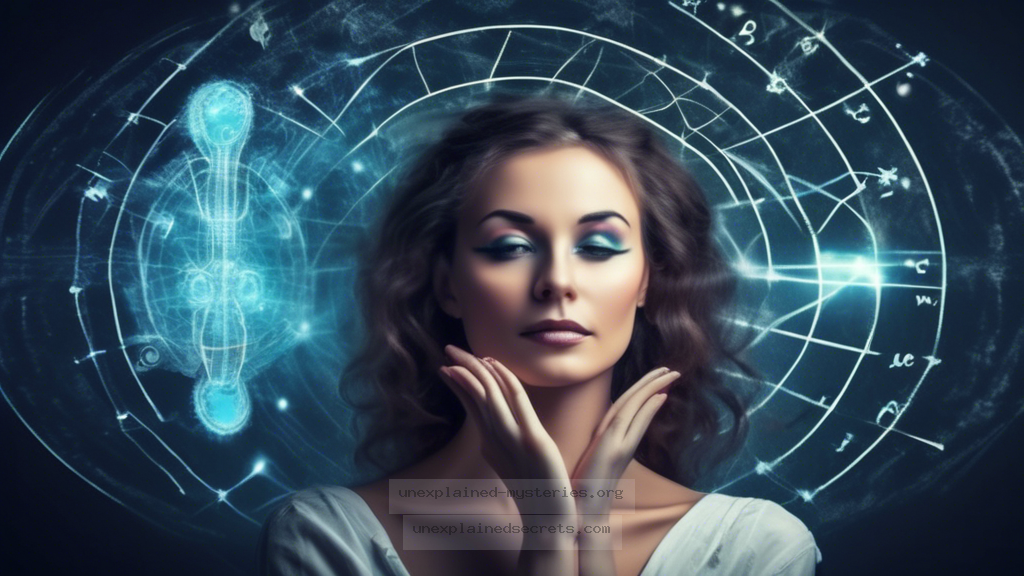Can Psychic Abilities Be Scientifically Measured and Verified?
Can Psychic Abilities Be Scientifically Measured and Verified?
The question of whether psychic abilities can be scientifically measured and verified has intrigued researchers, skeptics, and enthusiasts alike for decades. As we delve deeper into this compelling mystery, we aim to unravel the complexities surrounding psychic phenomena and the ongoing debate regarding their legitimacy. Understanding this question not only sheds light on human potential but also challenges our perceptions of reality and consciousness. In this blog post, we will explore historical accounts, scientific studies, and alternative perspectives to provide a comprehensive overview of this enigmatic subject.
Historical Context of Psychic Abilities
Psychic abilities, often referred to as extrasensory perception (ESP), have been part of human culture for centuries. From ancient shamans to modern-day psychics, these abilities have manifested in various forms, including clairvoyance, telepathy, and precognition. The early 20th century marked a surge in interest surrounding psychic phenomena, leading to the establishment of organizations like the Society for Psychical Research in 1882, which aimed to investigate such claims scientifically.
Notable figures in the field include Edgar Cayce, known as the “Sleeping Prophet,” who provided medical diagnoses and guidance while in a trance state. Similarly, the work of Joseph B. Rhine, who conducted experiments with cards to test telepathy and clairvoyance, laid the groundwork for parapsychology as a scientific discipline. Despite these efforts, the scientific community remains divided on the authenticity of psychic claims, with many asserting that results are often inconclusive or the result of bias.
Core Concepts and Theories Behind Psychic Phenomena
At the heart of the discussion around psychic abilities are several core concepts and theories. First is the notion of consciousness and its potential to transcend physical limitations. Some researchers propose that consciousness is a non-local phenomenon that can connect individuals across time and space, suggesting that psychic abilities may be an expression of this interconnectedness.
Another prevalent theory is the idea of heightened intuition. Some argue that what is often labeled as psychic ability is simply an advanced form of intuition, honed through experience and subconscious processing of information. This perspective aligns with psychological theories that emphasize the role of the subconscious mind in decision-making and perception.
Key Concepts:
- Non-local consciousness: Suggests a universal connection beyond physical presence.
- Heightened intuition: Advanced perception based on subconscious processing.
Scientific Investigations into Psychic Abilities
Scientific interest in psychic phenomena gained momentum in the mid-20th century, prompting numerous studies aiming to quantify and analyze these abilities. One of the most significant investigations was conducted by the Stanford Research Institute (SRI) in the 1970s, which explored remote viewing—a practice where individuals attempt to describe or draw details about a distant or unseen target.
Researchers such as Russell Targ and Harold Puthoff reported promising results, claiming that participants could accurately describe targets with statistical significance. Despite these findings, critics pointed out methodological flaws and the lack of replicable results, leading to skepticism within the scientific community. This disparity between anecdotal evidence and rigorous scientific validation continues to fuel the debate about the existence of psychic abilities.
Documented Cases of Psychic Phenomena
Throughout history, there have been numerous documented cases that exemplify psychic phenomena. One of the most famous instances is the case of Uri Geller, an Israeli psychic known for his purported ability to bend spoons and perform other feats of telekinesis. Geller’s performances were closely monitored by skeptics, most notably James Randi, who argued that his abilities could be explained through trickery and deception.
Another intriguing case involves the work of Ingo Swann, a prominent remote viewer who participated in SRI’s experiments. Swann’s ability to describe detailed features of targets he had never seen was documented, yet the scientific community remains cautious, attributing success to chance rather than psychic ability. These cases highlight the ongoing struggle between anecdotal evidence and scientific scrutiny.
Alternative Perspectives on Psychic Abilities
The debate surrounding psychic abilities often encounters alternative perspectives that challenge conventional scientific views. Some proponents argue that the scientific method itself is limiting, as it may not fully account for the complexities of consciousness and human experience. They advocate for an interdisciplinary approach that includes psychology, spirituality, and metaphysics to better understand psychic phenomena.
Furthermore, some cultures embrace the concept of psychic abilities as a natural part of human experience. Indigenous tribes and spiritual communities often recognize psychic phenomena as gifts rather than anomalies. This cultural acceptance can provide valuable insights into the ways societies interpret and validate these experiences, highlighting the need for a broader understanding beyond mere scientific validation.
Common Misconceptions and Clarifications
Despite the growing interest in psychic phenomena, several misconceptions persist that hinder the understanding of this complex topic. One common belief is that all psychics possess the same abilities or that psychic powers are universally applicable. In reality, psychic abilities can manifest differently among individuals, and not everyone may have the same level of sensitivity or skill.
Another misconception is that psychic abilities are supernatural or magical. While many individuals perceive them as extraordinary, some researchers argue that these abilities may be rooted in human psychology and biology. This perspective encourages a more grounded approach to exploring psychic phenomena, emphasizing the importance of critical thinking and scientific inquiry.
Common Misconceptions:
- All psychics have the same abilities.
- Psychic abilities are purely supernatural.
Best Practices for Investigating Psychic Phenomena
For those interested in exploring psychic abilities, whether as researchers or enthusiastic practitioners, there are several best practices to follow. First and foremost, maintaining an open but skeptical mindset is crucial. This approach allows individuals to remain receptive to new ideas while critically evaluating experiences and results.
Engaging in controlled experiments can also provide valuable insights. Utilizing double-blind protocols, where neither the participant nor the experimenter knows the target or context, can help minimize bias and increase the reliability of findings. Additionally, documenting experiences and results in a systematic way can aid in recognizing patterns and improving methodologies over time.
Future Developments and Ongoing Research
The future of research into psychic abilities remains uncertain but promising. As technology continues to advance, new tools such as brain imaging and biofeedback may offer fresh insights into the neurological correlates of psychic phenomena. Researchers are increasingly interested in understanding the brain’s role in heightened intuitive experiences and potential psychic abilities.
Moreover, interdisciplinary collaboration could lead to innovative approaches to studying psychic phenomena. By combining insights from psychology, neuroscience, and spirituality, researchers may uncover new dimensions of consciousness and human potential that have yet to be explored. This collaborative approach could pave the way for more comprehensive investigations that bridge the gap between science and mysticism.
Conclusion: The Enigmatic Nature of Psychic Abilities
The question of whether psychic abilities can be scientifically measured and verified remains a captivating mystery that challenges our understanding of consciousness and reality. While historical accounts and documented cases provide intriguing insights, the scientific community continues to grapple with the complexities of psychic phenomena.
As we navigate this enigmatic landscape, it is essential to approach the topic with an open mind, critical thinking, and a willingness to explore alternative perspectives. The future of psychic research holds promise, and as we continue to investigate these extraordinary claims, we may uncover deeper truths about the nature of human experience and the potential that lies within us all.
Other Articles
Recent Posts
- What Happened to Flight MH370? The Conspiracy Theories That Still Haunt Us
- What Secrets Lurk Within the Walls of the Infamous Trans-Allegheny Lunatic Asylum?
- What Evidence Supports the Existence of Bigfoot in the Pacific Northwest?
- What Happened to the Indus Valley Civilization? Unraveling the Mysteries of Ancient Urban Life
- Can Telepathy Be Scientifically Proven Through Laboratory Evidence?







